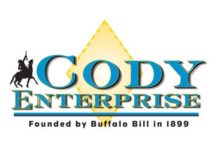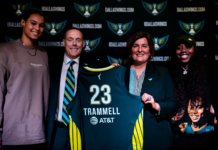MARK PAZNIOKAS :: CTMIRROR.ORG
Gambling photo op: Photographers crowd Gov. Ned Lamont after he made the first sports bet at Mohegan Sun: $50 on the Sun.
Sports betting in Connecticut kicked off Thursday with Gov. Ned Lamont putting $50 on the Connecticut Sun, $20 on the New York Yankees and $20 on Tom Brady and the Tampa Bay Bucs.
“I never would bet against Tom Brady,” said Lamont, a first-term governor, self-described sports junkie and self-evident neophyte gambler.
He referred to “casting” his first bets, a good verb for voting or fly fishing, not so much for making bets. His wager on the Bucs, 7-point favorites at Foxwoods Resort Casino over the Patriots, risks $20 to make $6.55.
“That’s all I get?” he asked, laughing.
Newbie or not, Lamont is the governor presiding over the most significant expansion of gambling in Connecticut since the opening of the tribal Foxwoods Resort and Mohegan Sun casinos in the 1990s.
Four months after Lamont signed legislation authorizing the state’s two federally recognized tribes, the Mashantucket Pequots and Mohegans, and the CT Lottery to take bets on sports, the governor was invited to make the first wagers.
Once strictly forbidden, the coziness of professional sports and gambling was evident at the governor’s first stop, Mohegan Sun, where two former NFL players mingled with guests.
Since 2003, the casino has owned the WNBA’s Connecticut Sun and hosted its games at an on-premises arena.
For the first time, fans can bet on the games as they go into the arena Thursday night. Despite losing their first game in double overtime, the Sun were 7.5 points favorites in the second game of their semifinals with the Chicago Sky.
“They’re playing the Sky. The sky’s the limit. I’m going to bet they’re going all the way,” said an effusive Lamont, a booster of legalization since taking office in 2019. “And I’m betting this is going all the way.”
Sports betting comes as the two tribal casinos, who once shared an otherwise exclusive gambling market between Boston and New York, are coping with increased competition and the loss of business during the COVID-19 pandemic.
Both carry publicly reported debts of about $2 billion, and Foxwoods has struggled. After defaulting on its debt in 2009, squeezed by competition and recession, it took five years for Foxwoods to restructure its loans.
The fiscal boost to the state by the gambling expansion is relatively modest — less than $30 million on the sports books and online casino games in the first year, with hopes they would mature with annual tax revenues closer to $100 million.
Connecticut made $628.9 million off gambling in 2019, the last year before COVID-19 depressed patronage at the casinos. The lottery produced $370 million; the tribes’ another $255 million; and OTB, $3 million.
The state will collect taxes of 18% initially on online casino gambling, increasing to 20% after five years; and 13.75% on sports betting.
But Lamont and lawmakers from southeast Connecticut, where gambling is a major source of jobs, say anything that helps improve foot traffic at the casinos can stabilize or improve employment.
The governor was in full promotion mode at both casinos Thursday. He cut a ribbon at Mohegan, and a cannon launched glittering confetti after Lamont made his first bet at Foxwoods.
“It’s how you do it,” Lamont said, waving his betting slip at Mohegan after stepping away from a betting window. “It’s not that tough.”
At Foxwoods, Lamont fed a $20 bill into a terminal, then picked the Yankees to beat Toronto. As the speeches continued, he turned back to the terminal, studying the NFL games.
He had joked about making a prop bet about how Pats coach Bill Belichick might greet his former quarterback, Brady, on Sunday night. Prop bets can be about almost anything — say, whether Brady will throw a touchdown in the 3rd quarter.
“They’ve been describing prop bets to me, whether Belichick and Brady actually embrace at the end of the game,” Lamont said. “That’s the one I’d like to put a few bucks on myself.”
With help from his chief of staff, Paul Mounds, the governor settled for a more conventional NFL wager. He fed another $20 into the machine, taking Bucs and giving the points.

MARK PAZNIOKAS :: CTMIRROR.ORG
Paul Mounds, the governor’s chief of staff, points to a touch screen the governor was using to bet on the favored Bucs over the Patriots. A win would pay out $6.55 on a $20 bet.
The only bets were cash and in person. A soft launch of on-line sports betting is expected late next week, followed by what promises to be a bigger cultural change — 24/7 casino games via any adult’s smartphone, laptop or tablet.
Last week, the Department of Consumer Protection opened its voluntary self-exclusion program for residents who wished to be banned from the new age of ubiquitous gambling before it began.
The CT Lottery can license up to 10 off-track betting vendors to offer sports betting, beginning Monday with Sports Haven in New Haven and followed by the Bobby V’s sports bars in Stamford and Windsor Locks.
“Today is our official launch,” said Jeff Hamilton, a Mohegan tribal member and the general manager of the Mohegan Casino, one of several the tribe owns and operates across the U.S. and overseas.
Two former NFL players, Darius Butler of the Patriots and Wayne Chrebet of the Jets, mingled at Mohegan. Butler played his college ball at UConn. Each made ceremonial bets, Butler on the Pats and Chrebet on the Jets.
UConn is off limits, at least for now. The law prohibits betting on in-state college sports, a limit the governor would be half-jokingly asked to consider jettisoning by day’s end.
Hamilton introduced Darius Butler as Rodney Butler, a gaffe that drew laughs. Rodney Butler is another former UConn defensive back, but he is better known as the tribal chairman of the Mashantucket Pequots.
“Thank you, Jeff Hamilton,” Rodney Butler said later after Lamont made the short ride to Foxwoods on the other side of the Thames River.
He thanked the governor and lawmakers for coming, then he nudged them to consider a revision to the new law.
“You can’t bet on UConn sports — yet,” Butler said, smiling as he pointedly looked to Lamont and the assembled lawmakers. “You’ve got to get comfortable with it. Most states start off that way, where you can’t bet on in-state schools, then over time you realize that it’s safe.”

MARK PAZNIOKAS :: CTMIRROR.ORG
The race book at Foxwoods now posts the line on sports. Both Foxwoods and Mohegan are constructing new sport books, while taking bets in temporary quarters.
Credit: Source link































